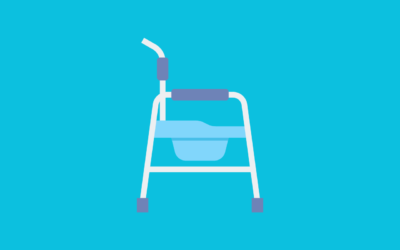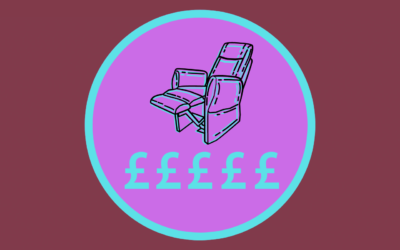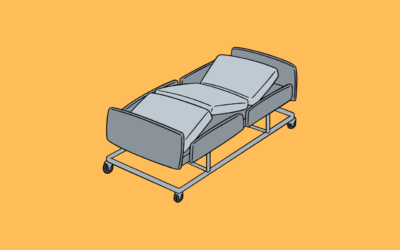Caroline Revell, marketing specialist at Moneyfacts Compare, explains how Personal Independence Payments (PIP) and Disabled Facilities Grants (DFG) can provide crucial support for individuals with disabilities or long-term health conditions.
If you or someone you care about is living with a disability or long-term illness, financial help in the form of Personal Independence Payment (PIP) and Disabled Facilities Grants (DFG) can make a real difference. Here’s a quick breakdown of what these benefits offer, who can apply, and how to get started.
What is Personal Independence Payment (PIP)?
PIP is a non-means-tested benefit aimed at people aged 16 to 64 with long-term health conditions or disabilities. It is designed to help cover the extra costs of living with a disability. PIP replaced the older Disability Living Allowance (DLA) and focuses on how your condition impacts your ability to perform daily tasks.
PIP Components
- Daily Living: For people needing help with day-to-day activities such as washing, cooking, or managing medications.
- Mobility: For those who require help moving around, whether that’s difficulty walking or using public transport.
Each component can be awarded at a standard or enhanced rate depending on your needs.
Am I Eligible for PIP?
You must meet these requirements:
- Age: Be between 16 and 64 years old.
- Disability: Have a condition that affects daily tasks or mobility.
- Residency: Live in the UK for at least two of the last three years.
- Duration: Your condition must last for at least 12 months.
PIP is not means-tested, so your income and savings won’t affect eligibility. The focus is solely on how your condition impacts your life.
How to Apply for PIP
The application process involves:
- Claim Form: Fill out a claim form detailing how your disability affects your life.
- Assessment: A healthcare professional may invite you to an in-person or phone assessment.
- Decision: After the assessment, the Department for Work and Pensions (DWP) will notify you of the decision.
Payments are typically made every four weeks.
Telephone advice for PIP
If you’re ready to apply for PIP or need help with the process, you can contact the PIP new claims phone line:
- Telephone: 0800 917 2222
- Textphone: 0800 917 7777
Numbers above correct as of 11/02/2025
What if My Claim is Denied?
If you’re unhappy with the decision:
- Mandatory Reconsideration: You can ask the DWP to review the decision.
- Appeal: If needed, you can take the case to an independent tribunal.
What is a Disabled Facilities Grant (DFG)?
DFGs are local council grants that assist people with disabilities by funding home adaptations to improve accessibility and safety. These modifications help you live more independently in your own home.
What Can a DFG Cover?
- Ramps or wider doors for wheelchair access
- Stairlifts
- Bathroom modifications
- Specialist equipment like a hoist
Who Can Get a DFG?
You must have a disability that limits your ability to live independently. There’s no age limit, though if you’re under 18, a guardian must apply for you. Homeowners can receive up to £30,000, but tenants need landlord approval.
How to Apply for a DFG
The application process involves:
- Contacting Your Council: Get in touch with your local council’s social services to discuss your needs.
- Assessment: An occupational therapist will assess your home to recommend necessary changes.
- Approval: If approved, the council will arrange the necessary work.
Combining PIP and DFG: How They Work Together
PIP and DFG can complement each other. While PIP helps with the extra costs of daily living, DFG can fund home modifications. For example, if you receive PIP and need modifications like a ramp or stairlift, a DFG can help pay for these changes.
Frequently Asked Questions (FAQs)
1. How does PIP differ from DFG? PIP is a benefit that provides financial support for extra daily living and mobility costs. DFG is a grant to help fund home adaptations for accessibility.
2. How do I apply for PIP? Start by calling the PIP new claims line at 0800 917 2222 or filling out a claim form online. Afterward, you may attend an assessment.
3. Can I receive both PIP and a DFG? Yes, you can receive both. PIP provides financial support, while a DFG helps fund essential home adaptations.
4. How much is the average PIP payment? PIP payments vary depending on your condition. The rates for the daily living and mobility components are between £72.65 and £108.55 per week for daily living, and £28.70 to £75.75 for mobility.
5. How long does it take to get a decision on my PIP claim? It typically takes around 8 weeks to receive a decision. However, it may take longer if further assessments are required.
Helpful Resources
www.citizensadvice.org.uk
www.gov.uk
www.turn2us.org.uk
www.disabilityrightsuk.org







